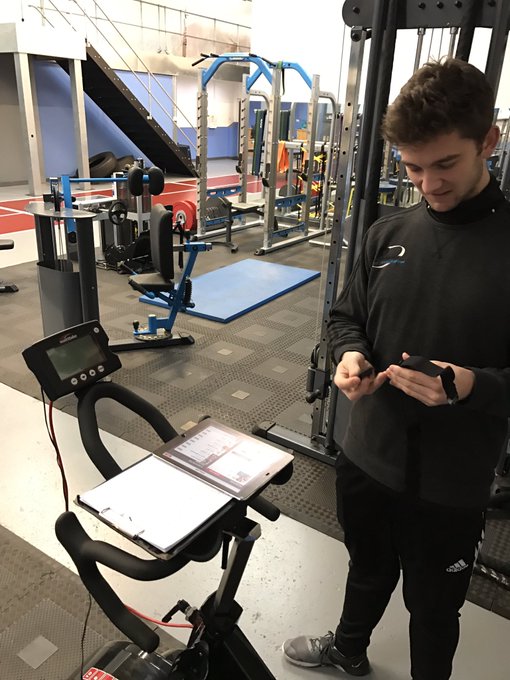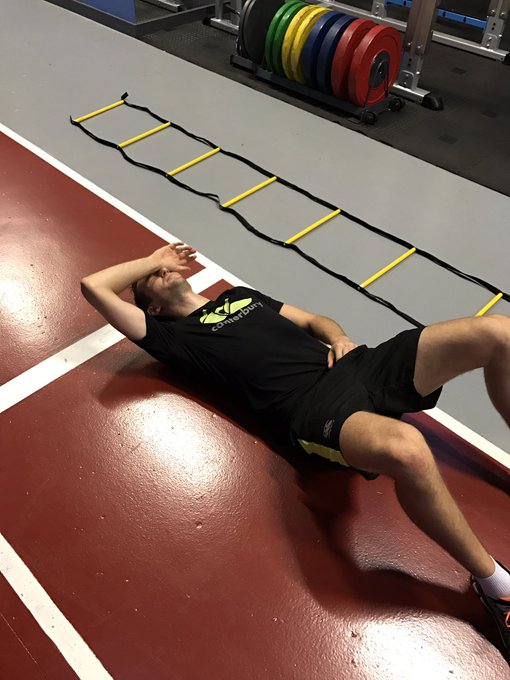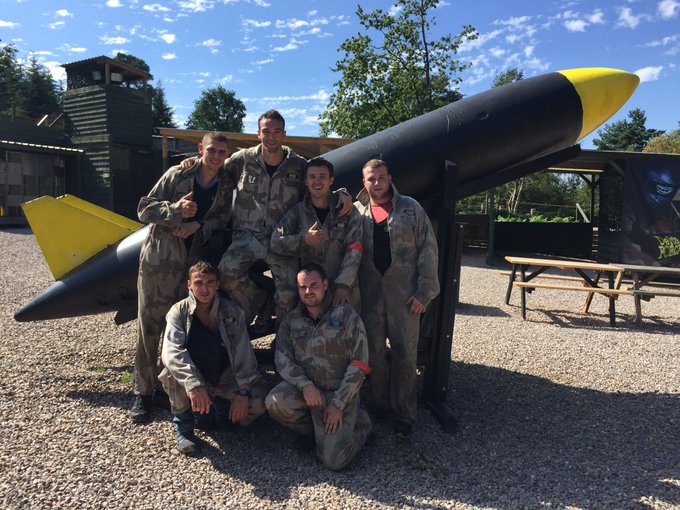
Being a professional racing driver is a dream job, but there are some things you just aren't prepared for before you live it.
Here are a few things I've learned since I started:
1. YOU NEED BETTER BOARDROOM SKILLS THAN ALAN SUGAR
Motor racing is very expensive - and it’s getting tougher and tougher to earn a living from. To fund my Formula Renault campaign I had five or six personal sponsors.
Sponsorship has changed from just having a sticker on the car. Now you really have to offer them value, you have to put the deals together - and obviously the stronger business case you can put to them, and the stronger it actually works in reality, the more chance you have of keeping sponsors for a long time.
Once you have them on board you have to keep them happy, entertain them at the track, keep them up to date with everything that you’re doing, get as much media coverage as possible for them - and make B2B introductions to try and generate more business for them.
You see some guys who have retained sponsors for 20 years over their whole career, and that’s what I’m trying to build.
2. YOU SPEND YOUR LIFE WATCHING YOUR WEIGHT
So much work goes into making the cars as light as possible, so teams don’t take too kindly to drivers turning up overweight.
As [Ford Chip Ganassi Racing team boss] George Howard-Chappell said to me: ‘The car doesn’t know how heavy you are’.
I need to be 75 kilos with all my kit. I’m just over 6ft, so obviously it’s a bit tougher for me to get to that weight than someone who is 5ft 4in.
If I’m really trying to lose weight quickly I’ve got a calorie counter app on my phone that has the calories of every single thing and I follow that religiously.
Over the winter I was a bit over my target weight, and there was a friendly conversation where George reminded me ‘we need a few kilos off before the start of the year’.
I did lose it, but had I turned up to the first race overweight the conversation would have been less friendly…
3. YOU NEED TO BE A WHIZZ IN THE KITCHEN
Because I have to be so weight conscious I really have to watch what you eat. The higher I’ve gone up the ladder the more I’ve tried to take every aspect of it into my own hands, so I now do most of the cooking myself and I’ve actually started to get into it.
I generally have reasonably carby lunch to give me energy for my training in the afternoon and then in the evening it will just be protein and veg. Salad, fish and lean chicken. No snacking. No bad stuff.
At Silverstone in the race I burnt 2900 calories in the car, so after a race is the one time you have a bit of a deficit that you can definitely fill with a cheeky burger.
4. YOU'RE NOT ONLY A DRIVER, YOU'RE ALSO A RUNNER OR A CYCLIST
Every top driver has to be super fit and lean. Almost everyone I know is either a cyclist or runner.
I can be in the car for up to three or four hours at a time so I figure I need to be out running for at least a couple of hours and get that heart rate so of like 130/140 or even 150 which is what we’ve measured it to be in the car.
I visit a specialist racing drivers’ fitness facility called Pro Performance once or twice a week as they really know the specific fitness needs we have.
When I’m not with them I’ll be out on the road running every day, and I’ll do anything from 10k in 40 minutes to up to a half marathon distance.
5. YOU NEED A NECK LIKE A TREE TRUNK
You can be racing for four hours at a time and experiencing up to 4G in the corners. It’s the equivalent of having 32kg pressed against your head at maximum cornering and braking.
When I first jumped for karts to cars and went to some tough UK tracks like Rockingham, after 20 laps my neck was just completely gone - I just physically could not hold it up in the corner.
It’s just like repping on a dumb bell in the gym and you get to 20 and your arm just literally just can’t move up anymore.
It’s a sport where you can’t practice every day, obviously, so every lap of practice you can get is vital. So if your neck’s fallen off after half a day it’s obviously not a great use of that precious practice time. And as you get into quicker cars and longer races it becomes more and more important.
6. YOU NEED THE RIGHT MAN IN YOUR CORNER
Having [three-time Le Mans winner] Allan McNish has opened many doors for me.
I am not from a racing background and I had no contacts in that world at all as a youngster. When I was 16 I was introduced to Allan and he took me on.
Obviously I had to perform in the car, but without him I wouldn’t have become a Le Mans winner: it was his contacts that got me a test with JOTA, which led to the race seat, which led to the Le Mans win, which got the attention of Nissan and then Ford, where I am now.
7. YOU HAVE TO GET USED TO DEPARTURE LOUNGES - AND YOU NEED TWO PASSPORTS
I often take between 50 and 60 flights a year, so you have to be extremely organised and very flexible.
Before I get on any flight I’ve already got a plan of whether I’m sleeping or staying awake, based on what time we’re going to arrive and how long I’ve got the other side before I need to be in a state of competitiveness.
I generally try and have at least one box set, a couple of books and a couple of magazines available. You need to make sure you’ve got your headphones charged up because there’s nothing worse than getting on a 10 hour flight and finding they are out of batteries.
You also need two passports because you often have to submit one for a visa request - plus having a spare helps as the team would not be too pleased if you have to miss a race because you lost it!
8. THERE ARE LOTS OF FUN THINGS YOU CAN’T DO ANYMORE…
The team does not want you getting injured and being unable to drive the car so they put it in your contract that you are not allowed to do various things like horse riding, white water rafting, scuba diving, hand gliding, para gliding, contact sports, bungee jumping and skiing.
Rugby is the hardest one for me. I played it at school and a lot of my friends still play but I have to watch from the sidelines.
It’s just not worth the risk of getting crunched and breaking an arm. It just doesn’t go down very well with the team if you can’t race because you were doing something stupid the weekend before.
9. … LIKE GOING TO THE PUB
It can be difficult when your mates are all going down the pub and you can’t go but if you want to be a professional sportsman you have to make sacrifices and trust me - the party after you’ve won is much, much better than the party that you missed out on because you were training and preparing for that race.
10. YOU CAN LOSE YOUR JOB WITH ZERO NOTICE
I found out on the same day as everyone else that Nissan were pulling out of LMP1 - we had no warning at all.
Suddenly I had no drive for the following season - and it was very late in the year.
That was December and then in January I went to Daytona to meet with Ford to try and see if there was an opportunity with them, which fortunately, there was.
11. YOU HAVE TO KNOW A LOT ABOUT ROAD CARS
Part of being a manufacturer driver is being an ambassador for the brand. I take customers out in Mustangs and RSs and stuff like that and you have to know the cars inside out as they will ask questions and expect you to know the answers.
It might seem odd but if you’re racing a Ford GT, you need to know all about the new Fiesta that’s coming out this year.
You have to do your homework. I had a DTM test with Audi in 2013 and one of the things they asked us was, ‘what is the Audi motto and what does it mean?'
Luckily I had prepared for that one!
12. YOU WILL END UP BUYING A LOT OF DOUGHNUTS
There are more than 40 people in the team - I am just one of them, and without them I would not have a car to race.
I might do a race and hopefully get on the podium, spray the champagne and then get a flight home, but they will be there until the next day, packing away the garage and stripping down the car, before doing it all again in reverse at the next race.
It means just as much to them if we win as it does to me, so as a driver you work hard to forge that bond with them.
We have done things like karting challenges and paint-balling with them - even small things like making sure I always bring in a load of Krispy Kremes when I visit the factory. It all helps.
13. YOU WILL NEED TO REMEMBER YOUR PHYSICS LESSONS
You have to give the engineers feedback about how the car is behaving so you can work on making it quicker, but you also need some understanding of physics and aerodynamics.
You don’t need to be Adrian Newey but you do need to understand how the car will behave and why, so remembering your school-days physics is a big help.
14. YOU WILL HAVE TO WRITE YOUR OWN ENCYCLOPAEDIA - YES REALLY
After each weekend I make a note of everything that happened with the car: all the technical changes we made, how I drove each corner, what gear I was in - everything.
At home I have now got an encyclopaedia of all the tracks that I’ve ever been to, in all the different cars, and I know, for example, that for turn 1 at Silverstone I need to brake at 90 metres.
It might be three or four years before I go back to a certain track and and I’m obviously not going to remember what gear I was in at the third corner so I note it down, then I update it each time I drive the track.
I think a lot of top guys do do it too. The higher up you go, the more you have to try and find every little edge you can.
15. YOU SHOULD ONLY DRIVE FAST ON THE TRACK
I have a Ford Mustang as my road car but I’m not a particularly fast driver on the road. I get enough thrills on the track, I don’t need to get them on the road.
Also, having a Ford-owned car, if you end up getting caught for speeding, the fines go to Ford first before they get sent out to you, so you don’t really want to be doing anything too bad in the company car because they will find out about it before you do!





















 : 4th June
: 4th June : 9am-1pm & 2pm-6pm
: 9am-1pm & 2pm-6pm



0 comments:
Post a Comment